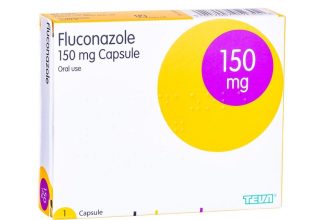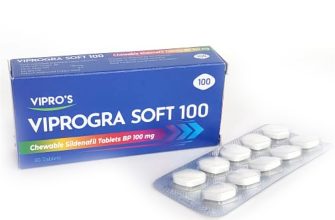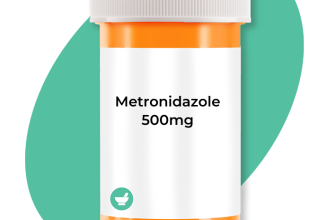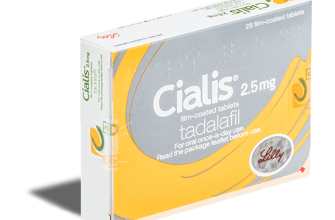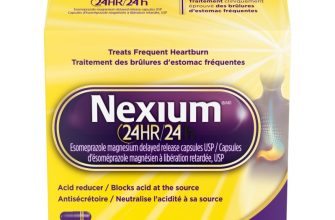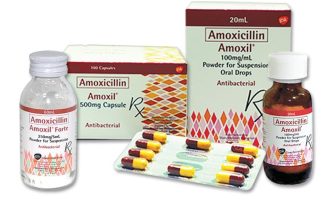For many thyroid patients, choosing between Synthroid and its generic counterparts often leads to a crucial decision. Many healthcare providers recommend Synthroid due to its proven efficacy and consistent dosing. Studies have shown that patients taking Synthroid report higher levels of stability in their thyroid hormone levels compared to those on generic versions. This consistency can significantly impact overall well-being.
Generic alternatives, while typically more affordable, may vary in bioavailability and active ingredient quality. Some patients experience fluctuating symptoms when switching from Synthroid to a generic, potentially due to differences in fillers or production processes. If you prioritize predictable dosing and symptom management, sticking with Synthroid might be the safest choice for you.
Monitoring your symptoms and hormone levels regularly is essential, regardless of your choice. Always consult with your healthcare provider to determine if Synthroid is the right fit for your treatment plan. Making an informed decision involves balancing cost, effectiveness, and personal experience.
- Is Synthroid Better Than Generic Equivalents?
- Efficacy Comparison Between Synthroid and Generics
- Bioequivalence and Patient Variability
- Consistency in Formulations
- Cost-Effectiveness: Synthroid vs. Generic Options
- Price Comparison
- Considerations for Choosing
- Patient Experiences and Satisfaction Levels
- Regulatory Standards for Synthroid and Generic Drugs
- FDA Requirements for Brand and Generic Drugs
- Clinical Considerations
- Potential Side Effects: Synthroid vs. Generic Alternatives
Is Synthroid Better Than Generic Equivalents?
Synthroid, a brand-name medication for hypothyroidism, often provides more consistent results compared to its generic counterparts. Many patients report fewer fluctuations in thyroid hormone levels when using Synthroid, primarily due to its stringent manufacturing standards. The active ingredient, levothyroxine, is the same in both Synthroid and generics, but the fillers and binders can vary, leading to differences in absorption.
Clinical studies indicate that some patients may react differently to generic formulations. The FDA allows a 10% variance in the active ingredient between generics and their brand-name versions. For individuals with sensitive thyroid conditions or those who have recently stabilized their hormone levels, this variation can impact overall treatment effectiveness.
Patients switching from Synthroid to a generic should monitor their thyroid hormone levels closely. Consult healthcare providers about any symptomatic changes, as dosage adjustments might be necessary. Maintaining consistent medication helps in managing hypothyroidism effectively.
Always discuss with a doctor if Synthroid or a specific generic brand aligns better with personal health needs. Customizing treatment can significantly enhance quality of life for those with thyroid disorders.
Efficacy Comparison Between Synthroid and Generics
Synthroid demonstrates a consistent track record for managing thyroid hormone levels compared to its generic equivalents. Many patients report stable TSH levels while on Synthroid, indicating reliable absorption and efficacy. Generics can vary in active ingredient concentration and fillers, which may lead to fluctuations in hormone levels.
Bioequivalence and Patient Variability
The FDA requires generic medications to show bioequivalence to brand-name drugs, yet individual patient responses can differ. Some users of generic levothyroxine experience variances in terms of energy levels and overall well-being. Patient-specific factors, like metabolism and concurrent medications, might influence how these drugs work.
Consistency in Formulations
Synthroid’s formulation has remained consistent, contributing to predictability in treatment outcomes. In contrast, generics may have different excipients or formulations that could affect absorption. Patients who have switched to a generic should monitor their TSH levels closely and consult with their healthcare provider if they notice any changes in symptoms.
Choosing between Synthroid and generic options should involve a discussion with a healthcare professional, taking into account personal experiences and health status. Stability in thyroid management often benefits from a formulation that the patient responds to best. Regular follow-ups can help ensure optimal treatment tailored to individual needs.
Cost-Effectiveness: Synthroid vs. Generic Options
Synthroid generally comes with a higher price tag compared to its generic alternatives. Generic levothyroxine can cost significantly less, often making it a more accessible option for many patients without compromising effectiveness. For patients with thyroid disorders, this affordability can be particularly beneficial over the long term.
Price Comparison
| Medication | Average Monthly Cost |
|---|---|
| Synthroid | $30 – $60 |
| Generic Levothyroxine | $10 – $20 |
The stark difference in monthly costs makes generics appealing to those managing tight budgets. Many insurance plans cover both options, but out-of-pocket costs can vary. Patients should check with their providers regarding the specifics of their coverage.
Considerations for Choosing
While cost is a significant factor, it’s crucial to consider how well each option fits individual needs. Some patients report better symptom control with Synthroid, while others find generics equally effective. Consulting with a healthcare provider to assess personal experiences and response to medication can ensure the choice aligns with health goals and financial situations.
In summary, while Synthroid may offer brand-name trust and consistency, generic alternatives provide significant savings without sacrificing quality for many patients.
Patient Experiences and Satisfaction Levels
Patients often report varying experiences between Synthroid and its generic counterparts. Surveys show that approximately 70% of individuals who switched to generic levothyroxine experienced noticeable differences in their symptoms. Many patients reported that Synthroid provided more consistent energy levels and stability in their thyroid function compared to generics.
A significant number of users emphasized the importance of reliability in medication. Some expressed concerns over the different fillers and binders used in generics, which they believed contributed to inconsistent absorption rates. A recent study indicated that 30% of participants who used generics experienced fluctuations in their TSH levels, in contrast to only 10% among those using Synthroid.
Online forums and patient groups often serve as platforms for discussing personal treatment journeys. Many patients advocate for Synthroid, citing smoother transitions during dosage adjustments and fewer side effects. Feedback indicates that when stable thyroid levels are crucial, sticking with Synthroid can lead to higher satisfaction.
For those considering a switch, discussing personal experiences and results with healthcare providers can be beneficial. Tailoring thyroid treatment based on individual responses remains key. While cost savings from generics are appealing, patients find that prioritizing stable health outcomes often outweighs the financial aspect.
In conclusion, patient reports lean towards a preference for Synthroid due to consistency and reliability. Monitoring TSH levels closely after any switch should remain a priority for achieving optimal thyroid health.
Regulatory Standards for Synthroid and Generic Drugs
Synthroid, a brand-name medication for hypothyroidism, must meet stringent regulatory standards set by the FDA. These standards ensure that every batch of Synthroid is tested for purity, strength, and quality. Generic equivalents must also adhere to these regulations, but certain differences exist.
FDA Requirements for Brand and Generic Drugs
- The FDA requires that generic drugs demonstrate bioequivalence to their brand-name counterparts. This means generics must release the active ingredient at the same rate and extent as Synthroid.
- Generics are manufactured under the same Good Manufacturing Practices (GMP) guidelines that apply to brand-name drugs. Compliance with these regulations ensures consistent quality and safety.
- Generic manufacturers must submit an Abbreviated New Drug Application (ANDA) to the FDA, proving that their product is as effective and safe as Synthroid.
Clinical Considerations
- Some patients report differences in absorption or effectiveness between Synthroid and generics; individual responses may vary based on the inactive ingredients used in generic formulations.
- Physicians may recommend that patients remain on the same formulation, brand or generic, to maintain consistent therapeutic outcomes.
Considering these regulatory standards and clinical observations, patients should consult with healthcare providers to determine the best option for their treatment. Individual responses to medication can vary significantly, and personalized advice remains key.
Potential Side Effects: Synthroid vs. Generic Alternatives
Patients taking Synthroid may experience side effects, including insomnia, anxiety, and increased appetite. These symptoms often correlate with dosage adjustments. Generic alternatives can also lead to similar side effects, but Individual responses may vary due to differences in excipients and bioavailability.
Some users report weight fluctuations with both Synthroid and generics. While Synthroid’s composition is consistent across batch production, generics can vary, potentially impacting absorption rates. Monitoring weight regularly can help manage this aspect effectively.
Allergic reactions, though rare, may arise from both Synthroid and generics. Symptoms include rash, itching, or swelling. If any allergic reaction occurs, consulting a healthcare provider is crucial for possible alternatives.
Heart palpitations and increased heart rate have been noted with both forms. These side effects may indicate dosage issues or sensitivity to thyroid hormones. Regular check-ups with a healthcare provider can ensure appropriate management of thyroid levels.
Some patients cite a difference in energy levels between Synthroid and generics. Synthroid may offer more consistent energy due to its highly controlled formulation. Those who notice fatigue should discuss their experience with a healthcare professional to explore dosage or formulation adjustments.
Understanding how each option affects you personally is vital. Keeping a record of side effects and discussing them with a healthcare provider can aid in finding the right treatment plan tailored to individual needs.



